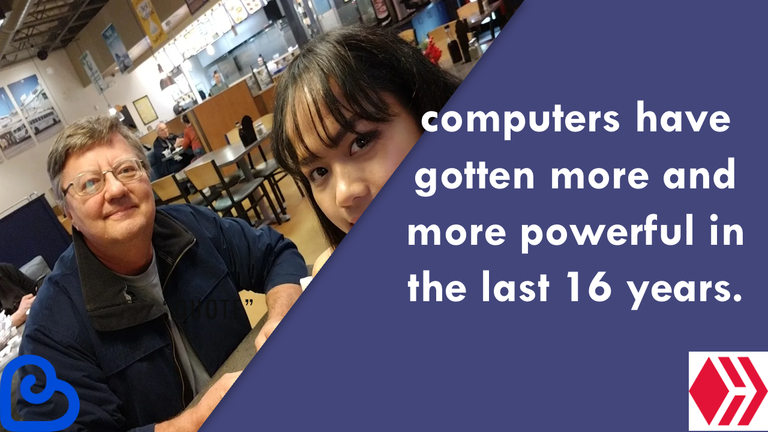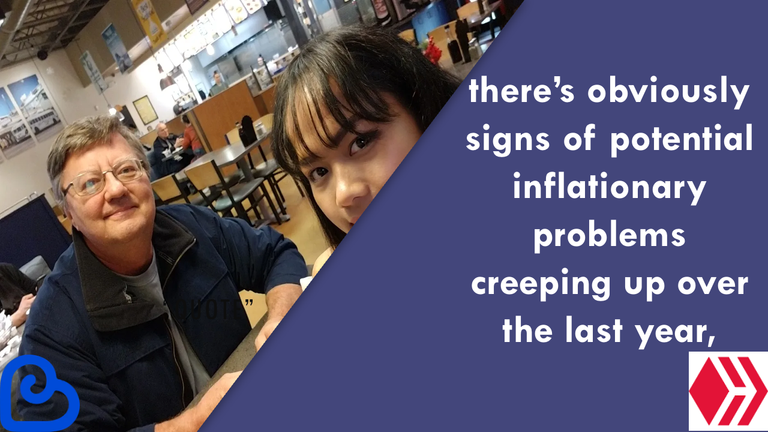The Exponential Age Is Upon Us | Bitcoin Adoption
Hey guys, welcome to Sunday Morning Leadership! This is V S Campbell. Thanks so much for joining me today. My topic that I’m taking on today just kind of a quick overview I’m calling The Exponential Age Is Upon Us, and it’s from a recent book that I’ve read. I’m going to bring that up here in a minute, but it’s something I’ve been responding to, especially regarding posts on Facebook and LinkedIn about Bitcoin, blockchain, blockchain technology, where it’s headed.

Is the exponential age upon us? I certainly believe that otherwise, I wouldn’t do this Topic but I think the evidence out there, if you’re paying attention to the horizon, what’s happening, it’s definitely there. The book that I’m referring to is called The Exponential Age by the author Azeem Azhar, and basically, it’s about how accelerating technology is transforming business, politics, and society.
One of the things he said is that the exponential age is a point at which the advancement of technology is so rapid that technologies are getting dramatically cheaper. I think we can see that in a number of areas, from the original cell phone, maybe the original big-screen TV—lall that. They’re getting cheaper, but also on the other side, they’re getting much, much better at a pace that is felt within the business cycle or within a couple years, not across decades. So again, the change is taking place at an ever-increasing pace hence, the exponential curve.
Now, he talks about four areas that are impacted by this, and I’m just going to touch base on them. I will include the link to the article in the description if you want to read further, or I would recommend reading through his book (or most of the book, I think probably give it about 80%). Okay, it kind of delves into some areas of socialism with his economics, and I’m not in agreement with that, but I think the overall scope and focus of the book is well worth your time and understanding where things are going to go here within, let’s just say, the next 10 years.

First, computing. We know, I’m on a computer right now but computers have gotten more and more powerful in the last 16 years. But he notes particularly in a period from about 2011 to 2015, we started seeing an artificial intelligence boom that created enormous demands for new computing. I’ll bring up one: Bitcoin mining. The new ASIC miners incredible technology, super high-performance computers designed specifically for that function. So entrepreneurs and businesses responded by creating ever more powerful chips.
Then, on energy the field of energy, specifically renewable energy he notes around 2016, electricity actually generated by solar power became the cheapest form of electricity in many, many parts of the world. In fact, we’ve got a solar generator that we can use that won’t power the whole house but can power main appliances in here. And again, whether you like it or not, guys, with solar technology, battery technology, Tesla love them or hate them, but they’re here to stay, and that technology is definitely taking off and taking place in our economy.
The other area is biology. I’m just going to give a snippet here; I’m not really delving into it, but he said scientists and engineers are able to apply technologies and learn from the beauty and elegance of nature.

The last area is manufacturing. I worked for a custom manufacturer in the Seattle area for 12 years, and in the field of manufacturing, 3D printing—I remember we got that printer probably maybe 10 years ago or more, kind of a novelty, looking to see what it could do. But now, they’re able to do much more precisely built components and ever bigger components, and they’re starting to use 3D printing more and more for diverse materials. In fact, he gives an example of a friend in an office building that was printed from cement from a 3D printer.
The beauty of 3D printing: It’s very local, it’s precise, it can use far fewer materils than traditional manufacturing methods.

The other area which I’m going to screen share on is Bitcoin adoption. He doesn’t really talk or didn’t delve too much into Bitcoin or blockchain; he makes kind of a passing mention of it. But I consider this an indelible part of the exponential age, and here’s why: Because Bitcoin’s been growing at an annual rate of about 113% versus the internet’s growth of about 63%. So it’s growing at twice the pace of the internet, and it has the fastest adoption of any technology ever.
You can see the internet on the top here, how it’s grown since the early days before it was even public, to where Bitcoin comes up and all of a sudden boom it’s here. So we’re seeing the adoption curve at a much faster pace. But the areas it’s going to impact I think, to this end, we do need more regulatory clarity in this space.
Adoption: We know that on September 8th last year, El Salvador became the first country to adopt Bitcoin as legal tender. But as the news flows since suggest, I don’t think they’ll certainly be the only ones or the last to do so. And then just recently, I read that the state of Arizona has introduced a bill to adopt Bitcoin as legal tender. Now, that may raise a lot of red flags undoubtedly, it will it may get some stiff opposition. Again, it probably will. Is it going to pass or not? I don’t know, but it’s just the state of where we’re at in the exponential age.
The other one is institutions like Visa, Mastercard, PayPal, BNY Mellon, Morgan Stanley, Goldman Sachs, and JP Morgan, to name a few that have adopted Bitcoin. Again, it’s the fastest adoption of any technology ever.

And if we look at the macro environment, there’s obviously signs of potential inflationary problems creeping up over the last year, certainly with the change of administrations and the Fed with all the stimulus money pumped out there. But most notably, we have the tightening employment conditions, we’ve seen issues with unemployment, consequent rise in wages in some places, coupled with rising producer and commodity prices across the globe. And the rate at which the Fed has been printing money (i.e., inflation) since 2020 has also raised significant concerns, it certainly has for myself.
And there are those that see inflation rising to a point where it threatens economic stability. So these are some areas where Bitcoin comes in and addresses problems of the dilution or the loss of purchasing power with money. Conceptually, that makes sense Bitcoin would be a hedge against inflation. In fact, we can even see support from SEC Chairman Gary Gensler acknowledging that Bitcoin is a store of value for people that wish to invest in it as they would invest in gold. So I think this further establishes its identity as a real asset.
Again, those like Cathie Wood (ARK Investments), Raoul Paul, that consider this a part of the macro investment environment.
And then we have, almost out of the blue, NFTs. They came almost out of nowhere, off the radar screen, and—boom—they blew up in 2021. Okay, they’re probably, without question, the hottest digital technology in the space currently, and it’s a prime example, I think, of the speed at which exponential technology is growing. So I think it’s an area to pay attention to—what’s going on. I certainly am, with some friends of mine; we’re taking a deep look at this and following it closely.
And I’m going to return to Azeem Azhar for two closing points. I think there’s three values that he thinks are important for navigating the exponential age:

- Commonality—We’re going to have a lot in common in the digital interface and interactions.
- Flexibility—We’ve got to be flexible; change is happening at an increasing pace. I know we don’t always like change, we don’t always embrace it, but you have to be flexible.
- Resilience—We’ve got to be resilient in tough times or times where there’s a lot of change happening and they come down the pipeline.
He notes this: That the use of blockchain and tokens can bring governments and communities together and create mechanisms for them to allocate resources to tackle whatever present issues they might need to deal with.
So again, folks, the exponential age is one in which change happens at an almost increasing pace. The exponential age is upon us. Are you aware of it? Are you paying attention to it? Are you adapting to those changes that are taking place?

I’d love to get your feedback on this your thoughts, pros, cons on this. Guys, thanks so much for joining me, and as always, have an awesome Sunday. Bye!